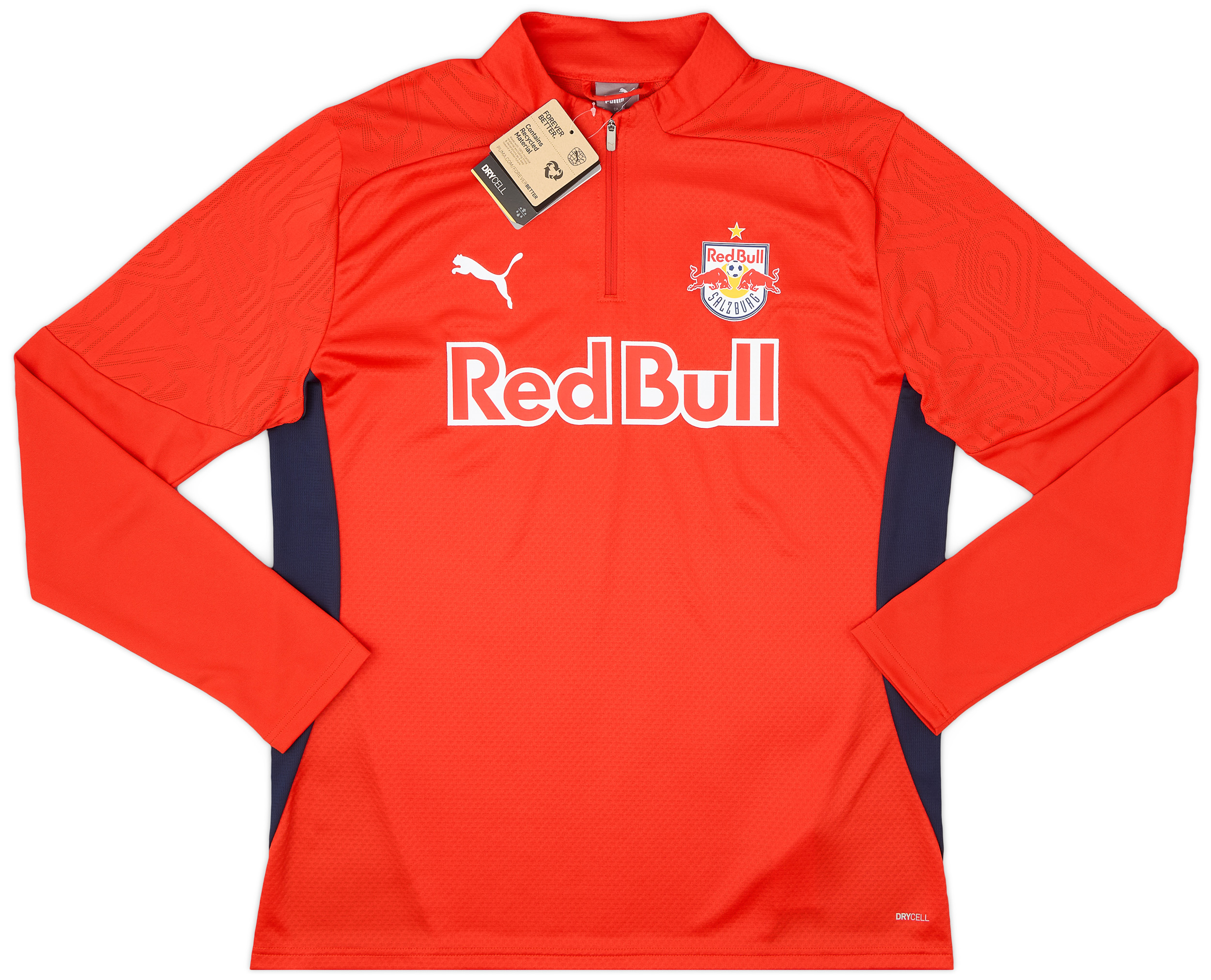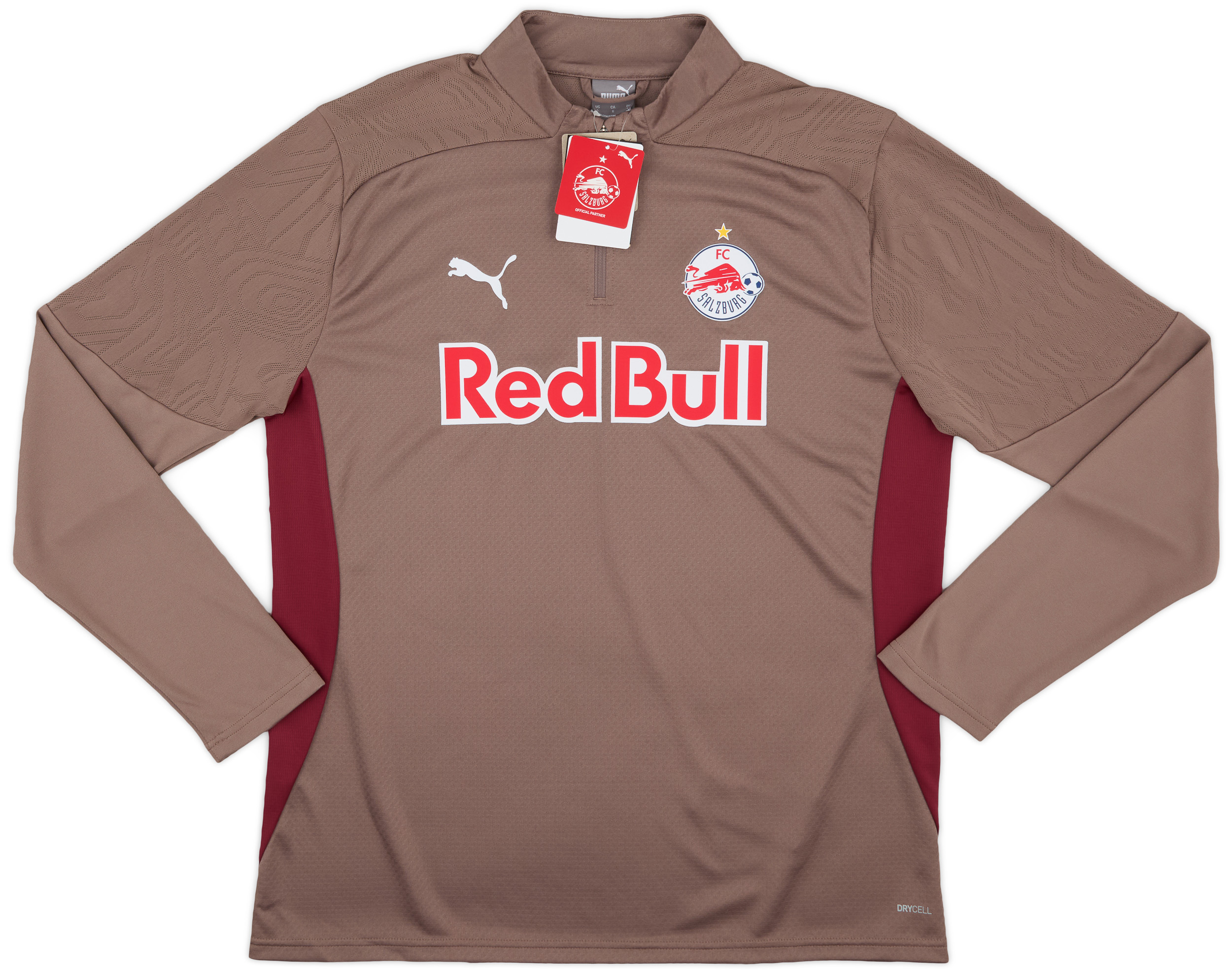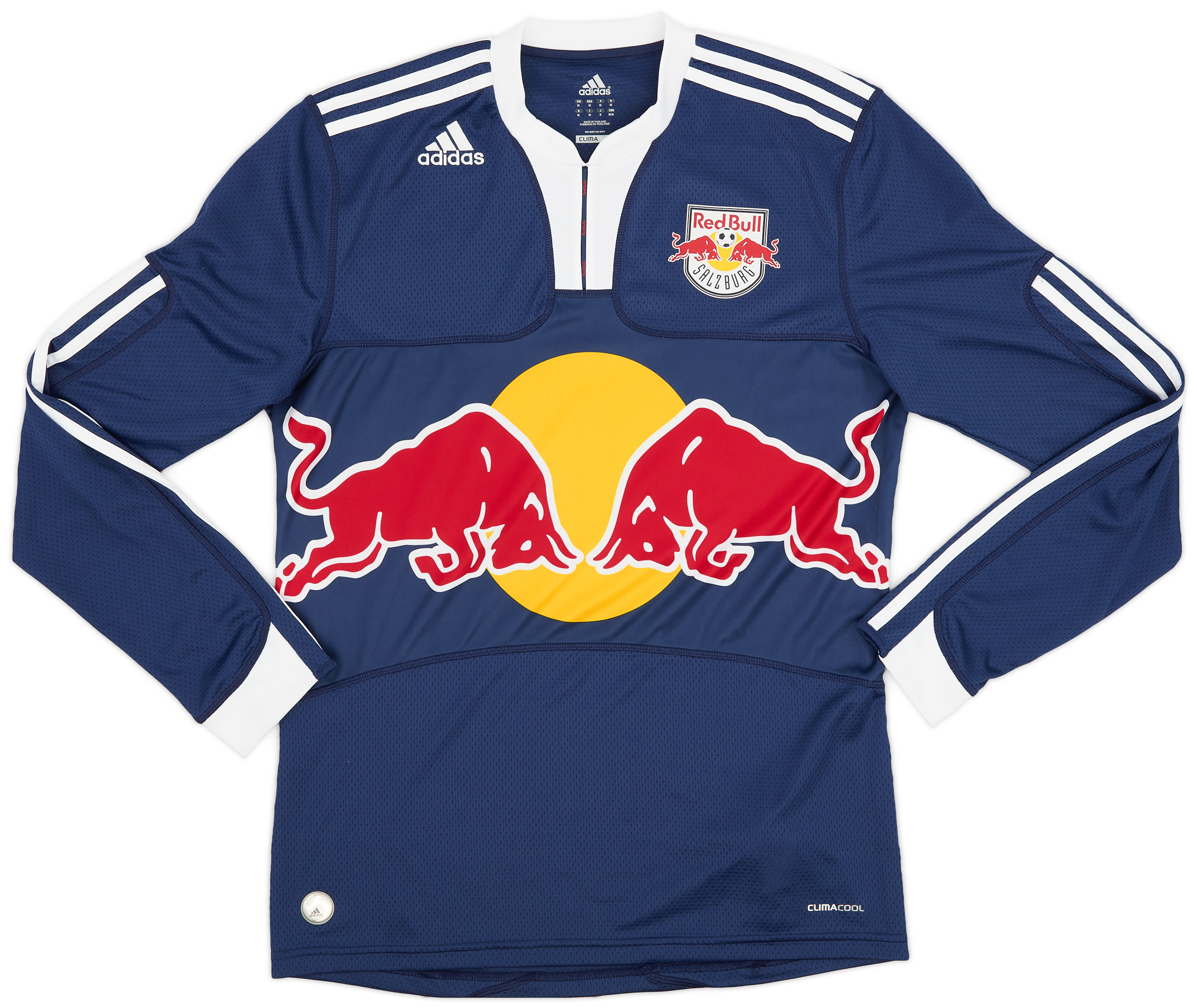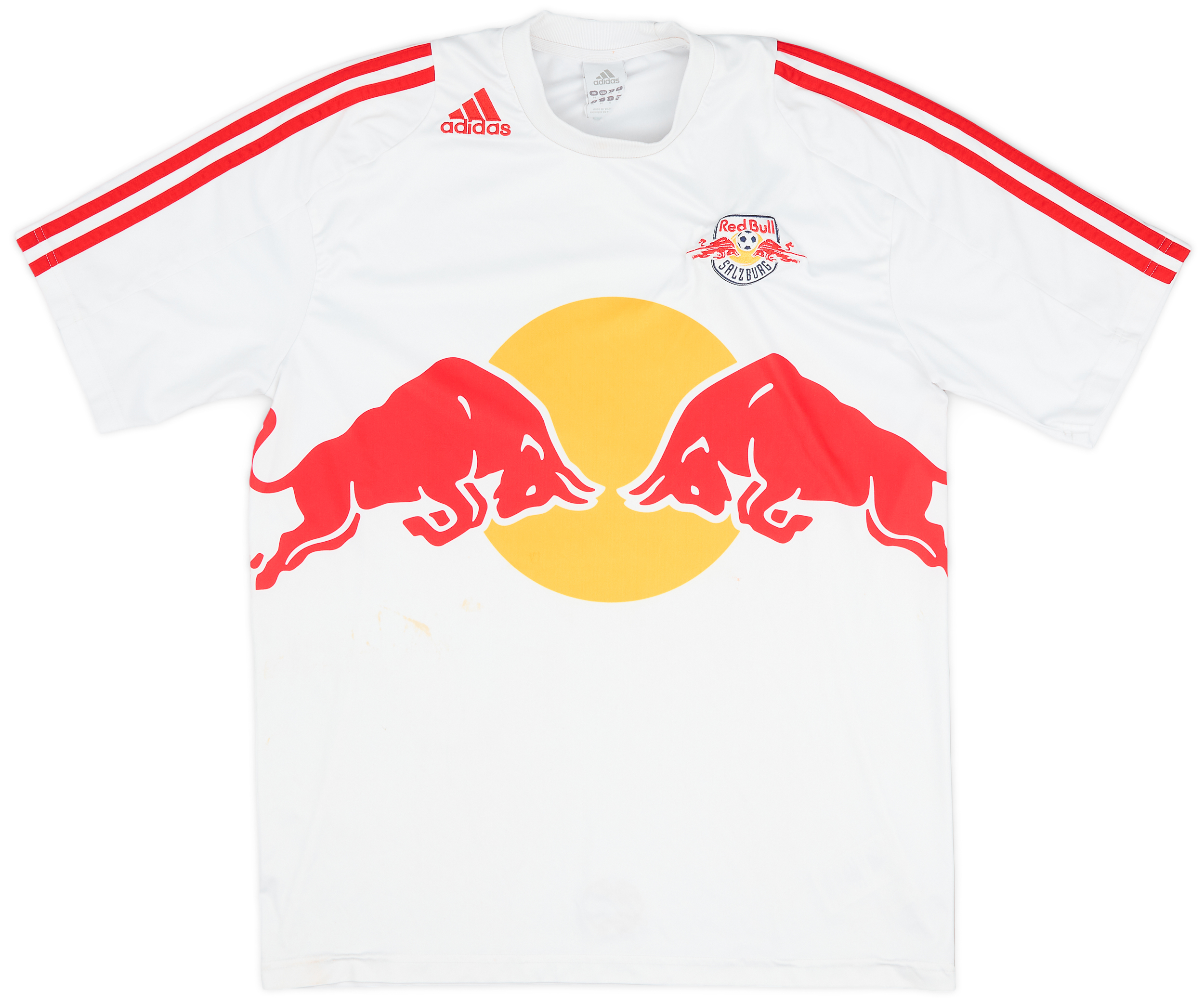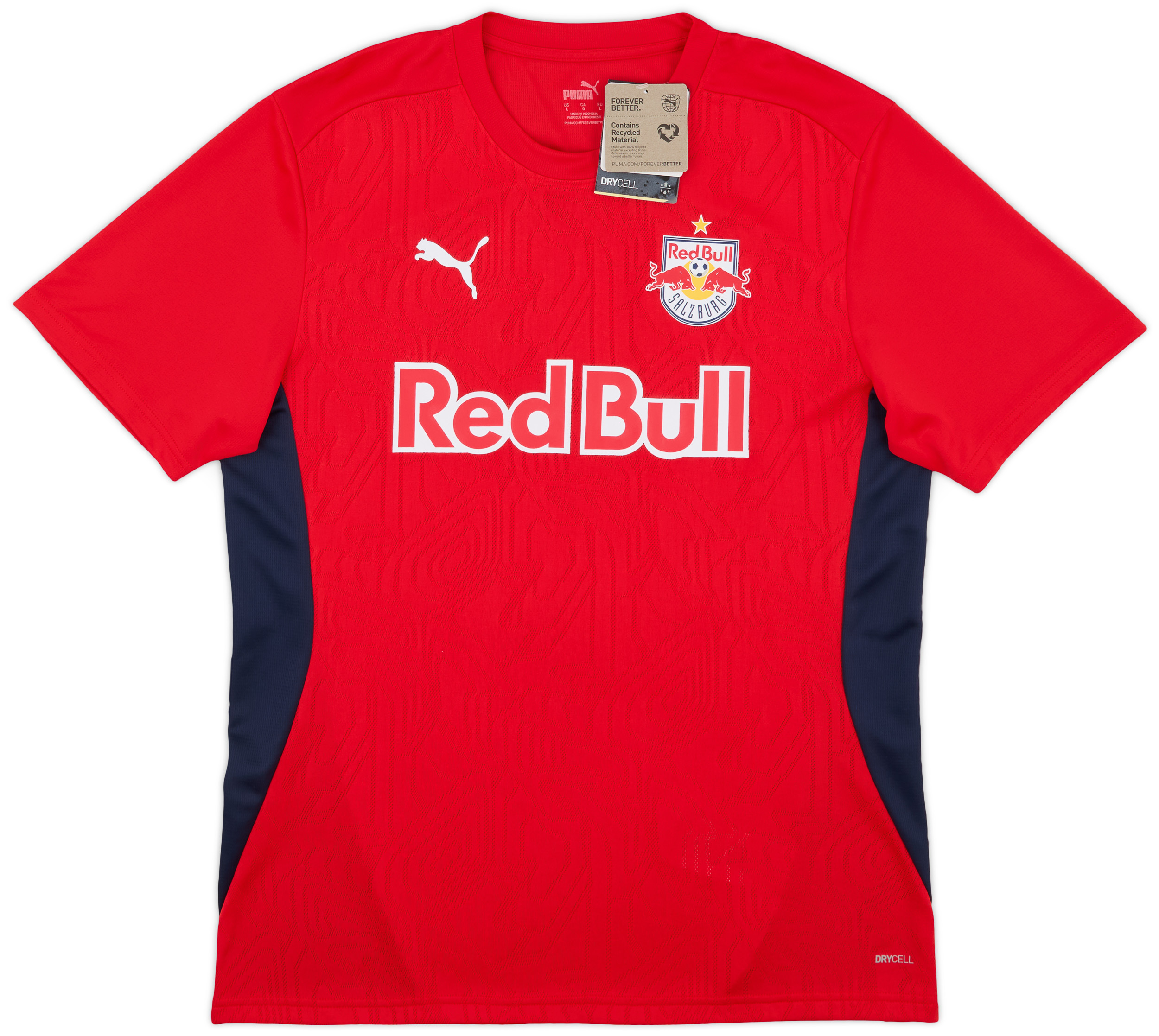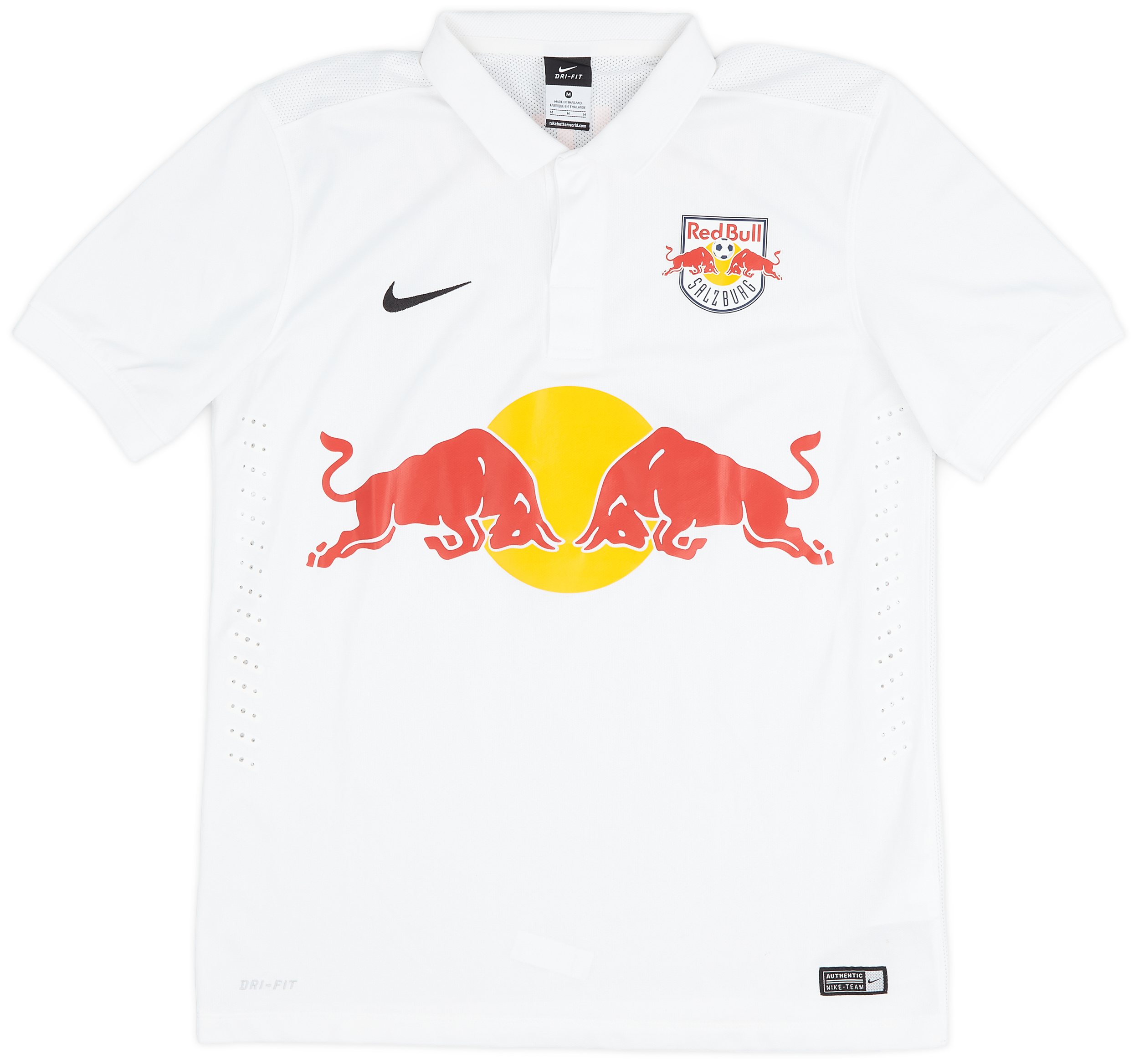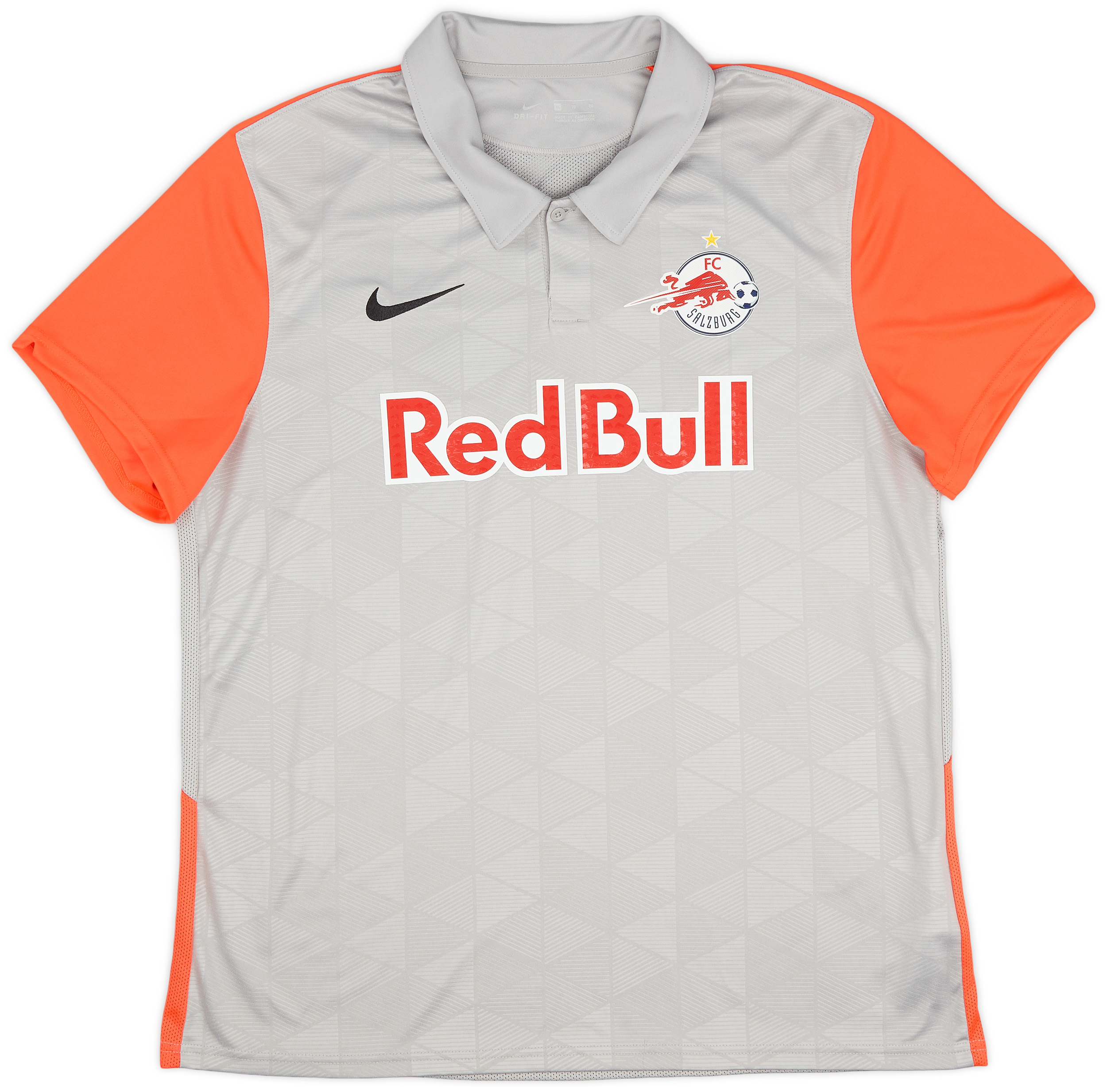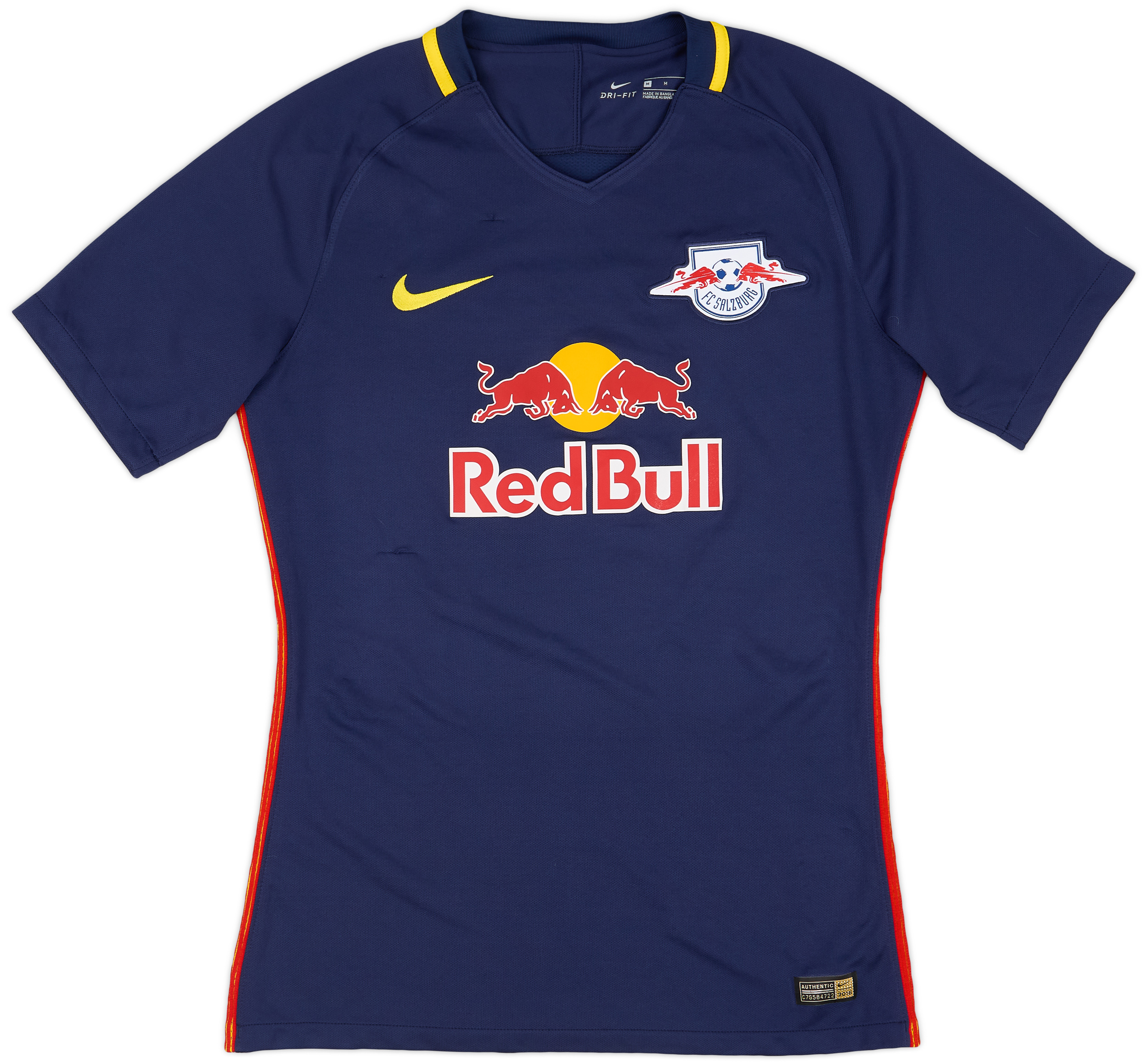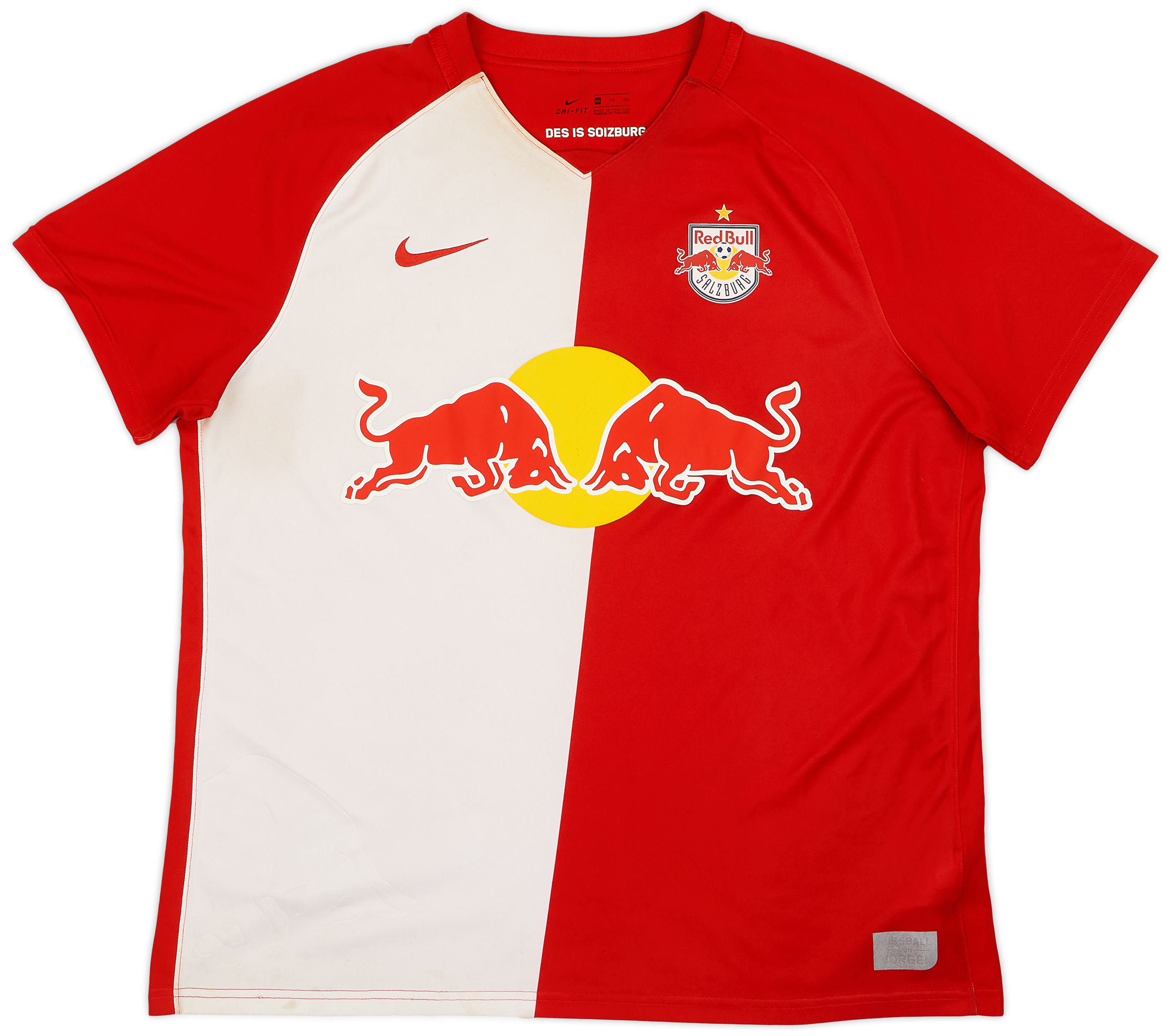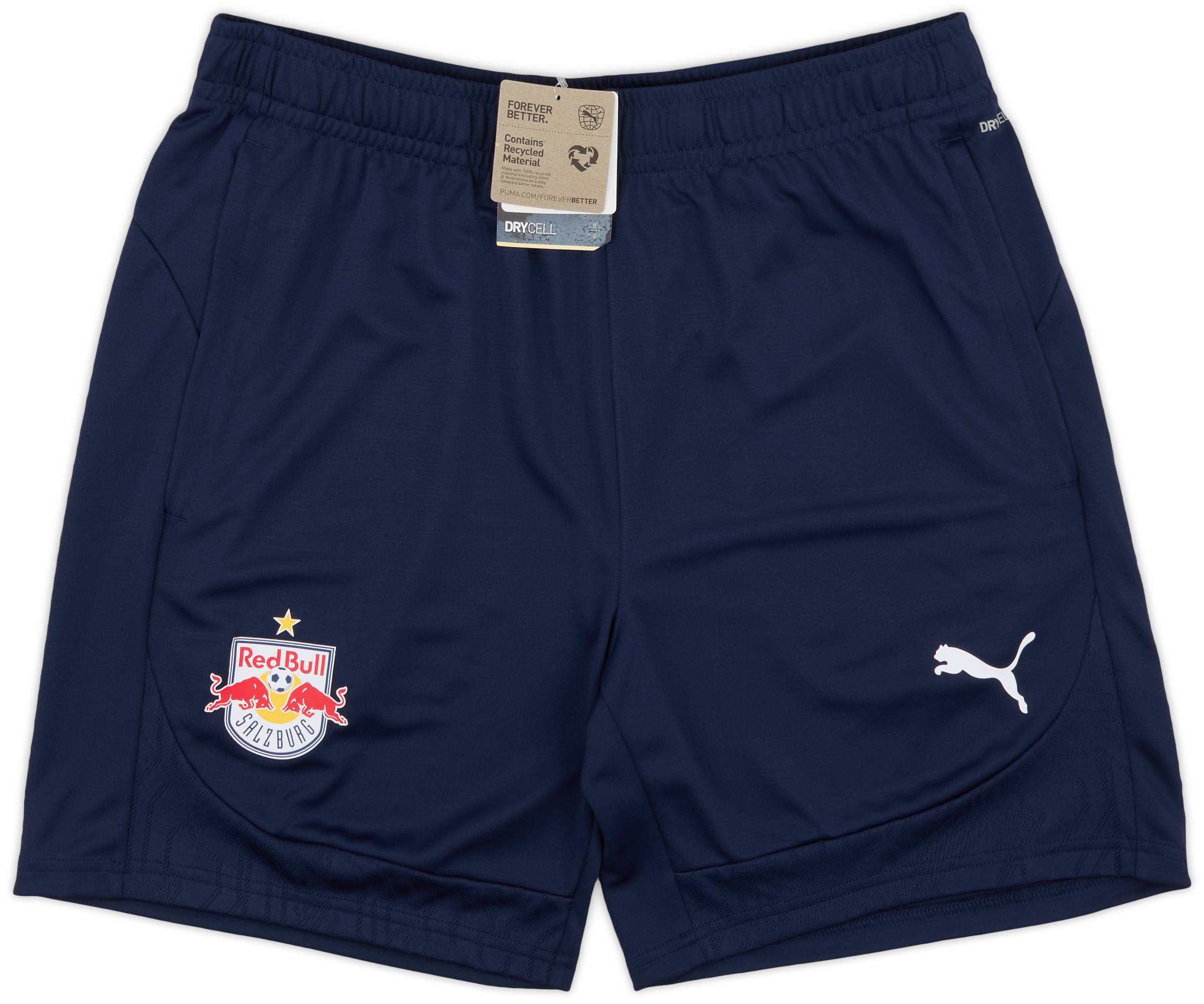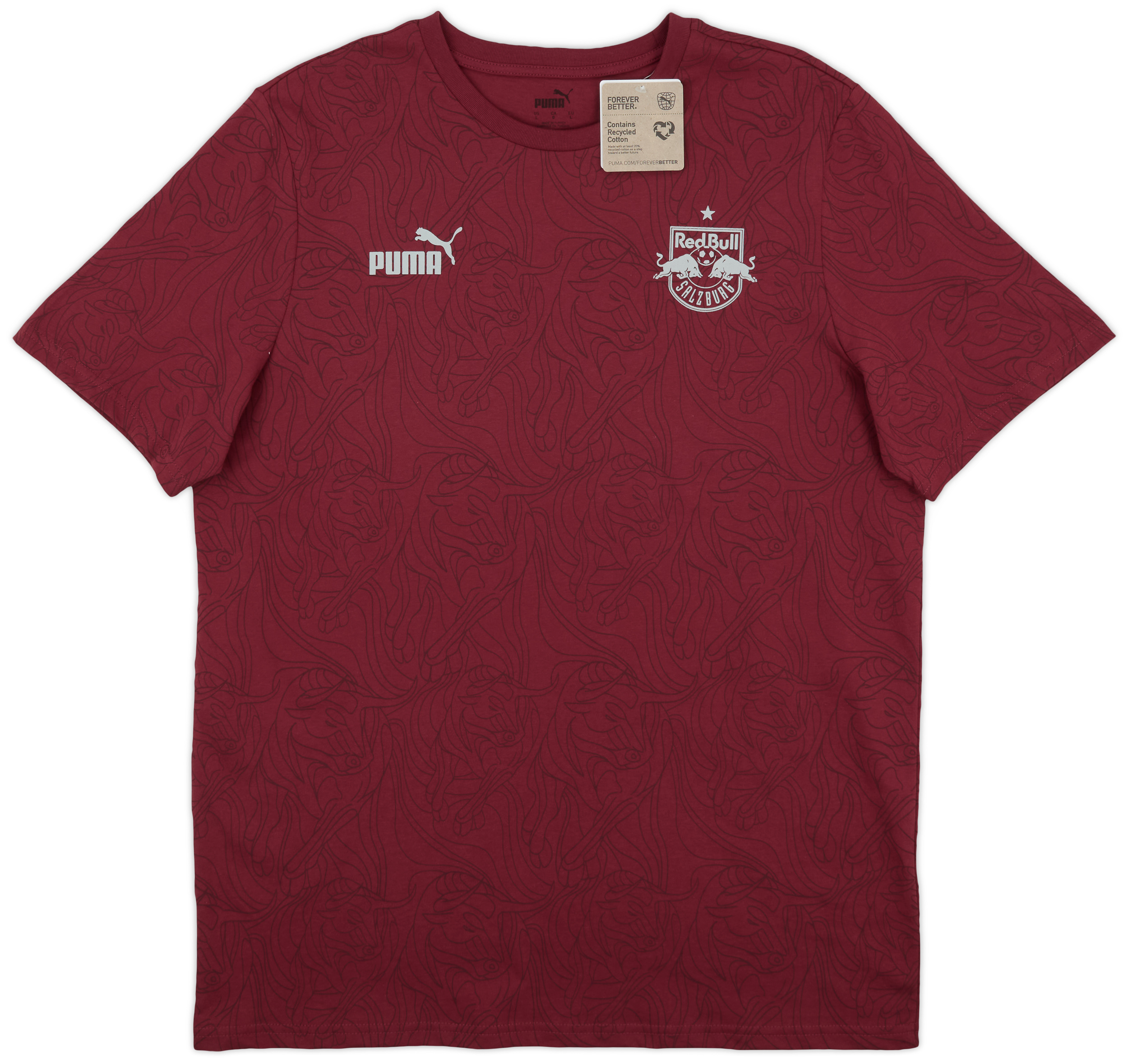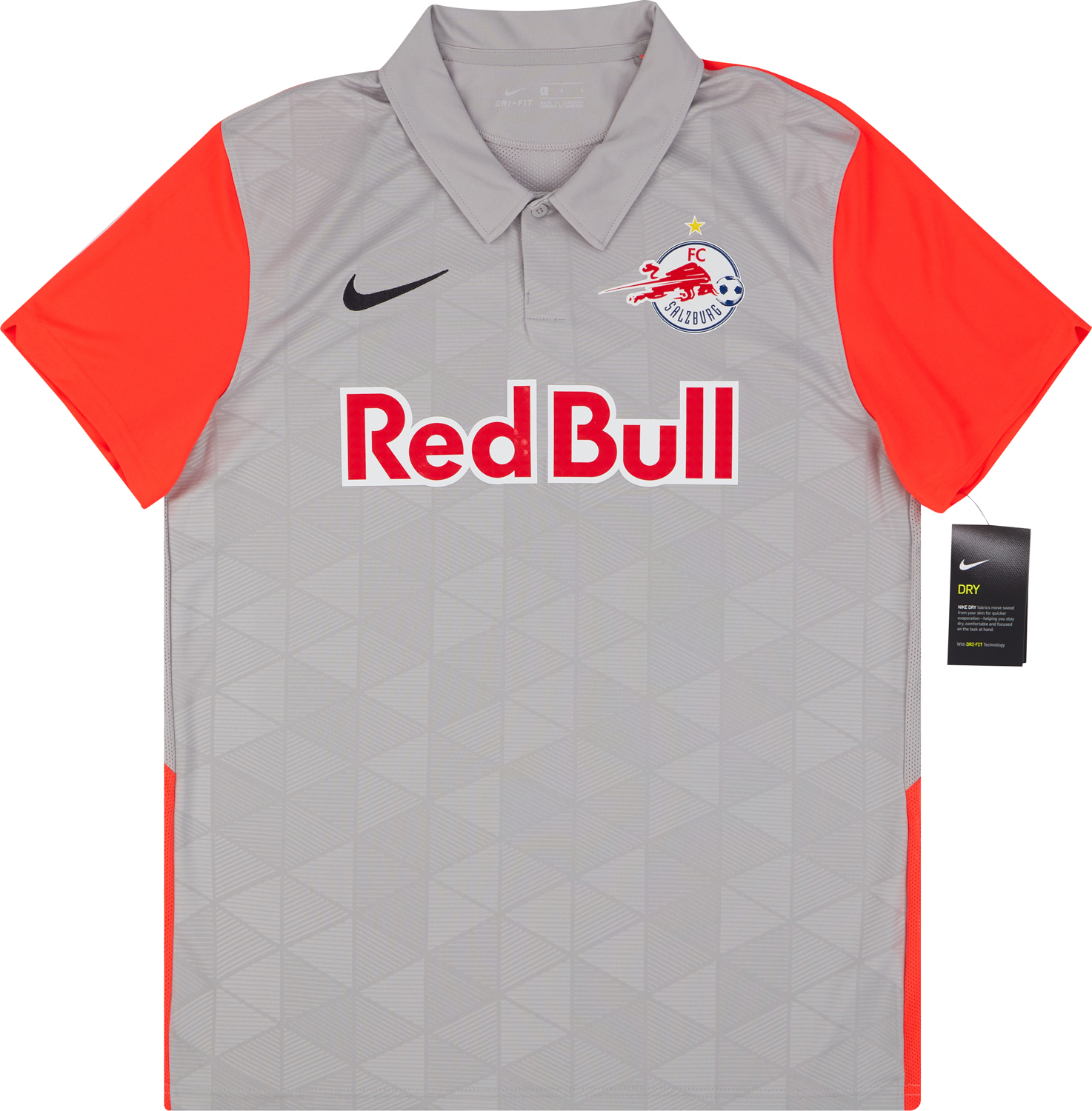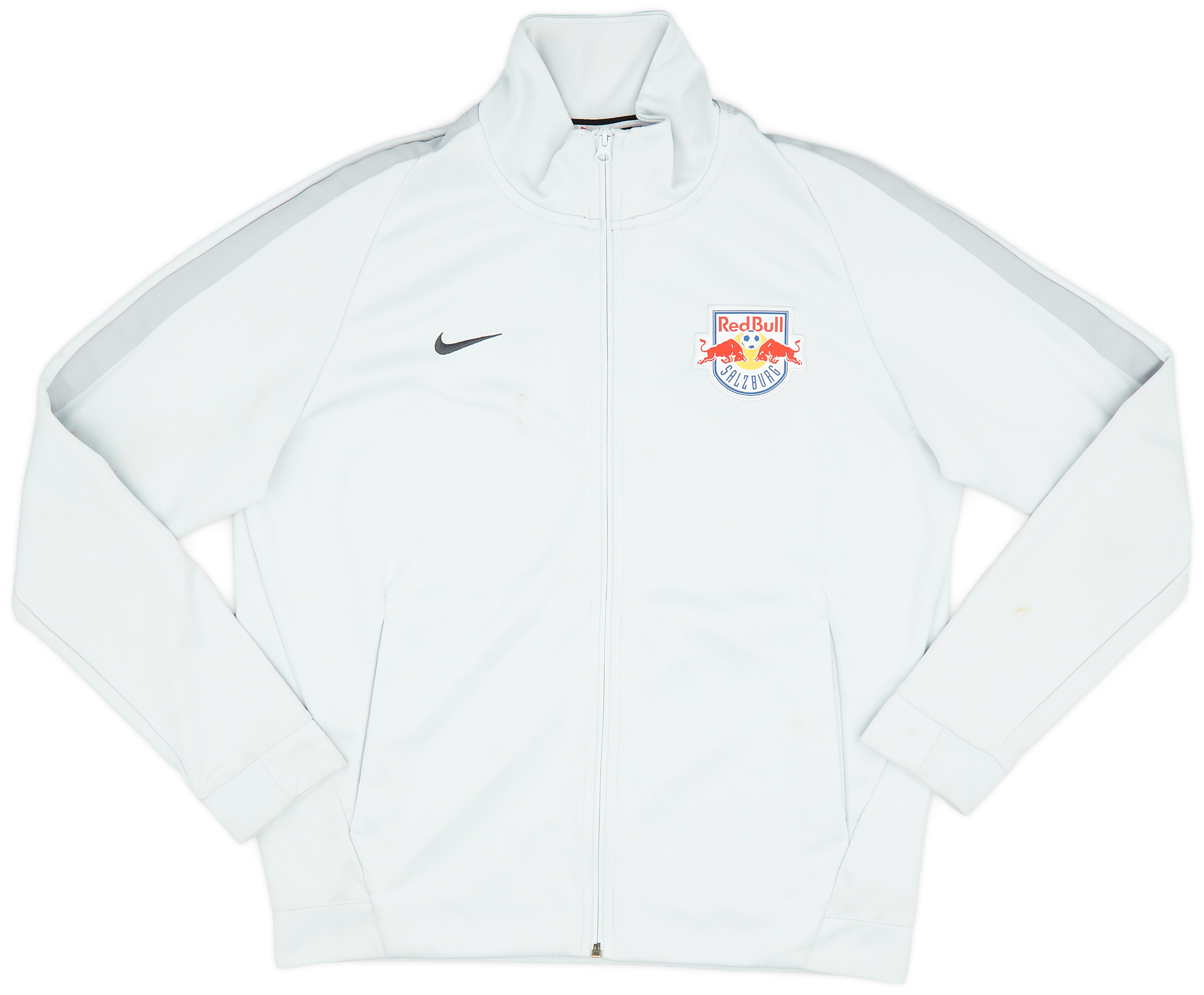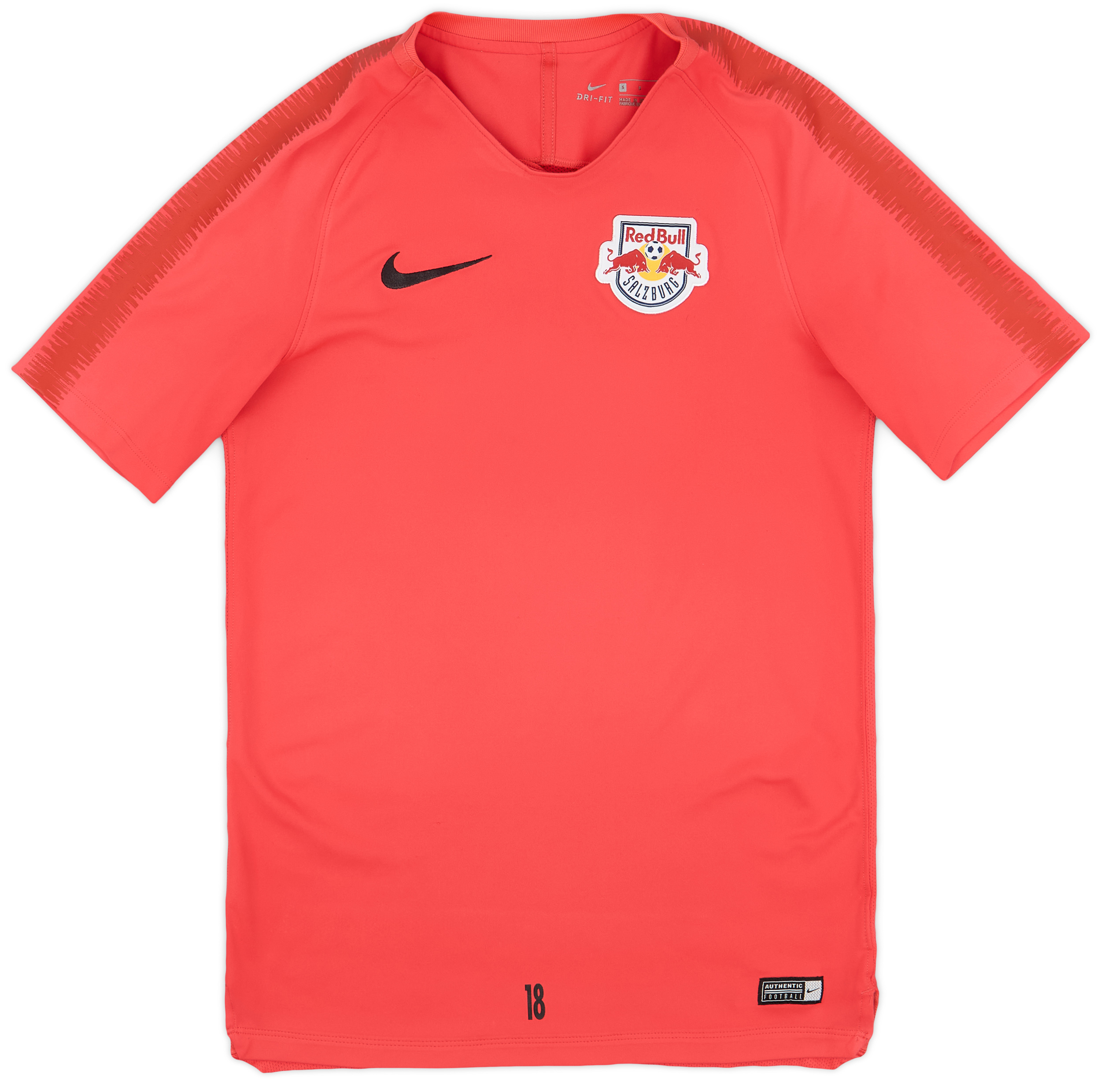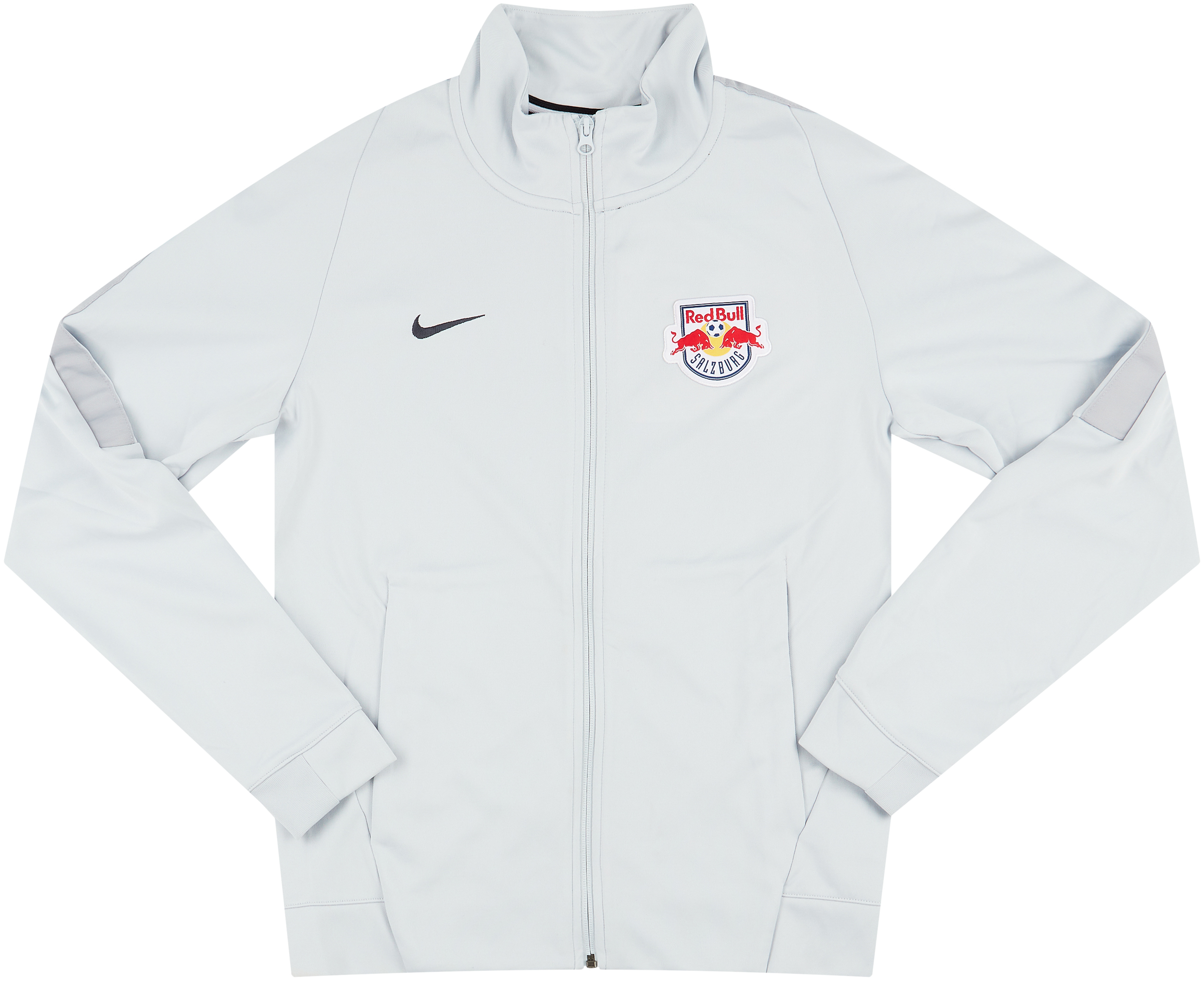Red Bull Salzburg
Introduction Red Bull Salzburg, an Austrian football club based in Salzburg, is known for its vibrant identity and dynamic playing style. Founded in 1933, the club has undergone significant transformation since being acquired by the Red Bull energy drink company in 2005. With a clear ambition to rise in European football, Red Bull Salzburg has […]
2024-25 Red Bull Salzburg Puma 1/4 Zip Training Top
82.99£ - ca: €98
2014-15 Red Bull Salzburg Home Shirt - 10/10 - (L)
82.99£ - ca: €98
2006-07 Red Bull Salzburg Home L/S Shirt - 6/10 - (XL)
82.99£ - ca: €98
2012-13 Red Bull Salzburg Away Shirt - 8/10 - (M)
82.99£ - ca: €98
2024-25 Red Bull Salzburg Puma 1/4 Zip Training Top
82.99£ - ca: €98
2009-10 Red Bull Salzburg Away L/S Shirt #4 - 8/10 - (M)
82.99£ - ca: €98
2008-09 Red Bull Salzburg Away L/S Shirt - 8/10 - (M)
82.99£ - ca: €98
2024-25 Red Bull Salzburg Home Shirt
79.99£ - ca: €94
2024-25 Red Bull Salzburg Home Shirt (KIDS)
77.99£ - ca: €92
2016-17 Red Bull Salzburg Away Shirt - 8/10 - (M)
70.99£ - ca: €84
2014-15 Red Bull Salzburg Home Shirt - 8/10 - (S)
70.99£ - ca: €84
2006-07 Red Bull Salzburg Home Shirt - 6/10 - (XXL)
70.99£ - ca: €84
2007-08 Red Bull Salzburg Away Shirt - 9/10 - (S)
70.99£ - ca: €84
2005-06 Red Bull Salzburg Away Shirt - 8/10 - (L)
70.99£ - ca: €84
2006-07 Red Bull Salzburg Home Shirt - 6/10 - (M)
70.99£ - ca: €84
2013-14 Red Bull Salzburg Home Shirt - 8/10 - (XL)
70.99£ - ca: €84
2005-06 Red Bull Salzburg Away Shirt #12 - 7/10 - (M)
70.99£ - ca: €84
2014-15 Red Bull Salzburg Home Shirt - 9/10 - (XXL)
70.99£ - ca: €84
2006-07 Red Bull Salzburg Away Shirt - 6/10 - (L)
70.99£ - ca: €84
2007-08 Red Bull Salzburg Away Shirt - 8/10 - (M)
70.99£ - ca: €84
2007-08 Red Bull Salzburg Home Shirt - 8/10 - (L)
58.99£ - ca: €70
2024-25 Red Bull Salzburg Puma Hooded Sweat Top
58.99£ - ca: €70
2024-25 Red Bull Salzburg Puma Training Tee
58.99£ - ca: €70
2006-07 Red Bull Salzburg Home Shirt Zickler #7 - 5/10 - (XL)
58.99£ - ca: €70
2014-15 Red Bull Salzburg Home Shirt - 7/10 - (M)
58.99£ - ca: €70
2014-15 Red Bull Salzburg Home Shirt - 7/10 - (M)
58.99£ - ca: €70
2014-15 Red Bull Salzburg Home Shirt - 7/10 - (S)
58.99£ - ca: €70
2007-08 Red Bull Salzburg Away Shirt - 6/10 - (L)
58.99£ - ca: €70
2020-21 Red Bull Salzburg European Away Shirt - 9/10 - (XL)
58.99£ - ca: €70
2016-17 Red Bull Salzburg Away Shirt - 6/10 - (M)
58.99£ - ca: €70
2020-21 Red Bull Salzburg Home Shirt - 6/10 - (XXL)
53.99£ - ca: €64
2007-08 Red Bull Salzburg Home Shirt - 6/10 - (S)
53.99£ - ca: €64
2021-22 Red Bull Salzburg Home Shirt - 9/10 - (M)
53.99£ - ca: €64
2024-25 Red Bull Salzburg Puma Training Shorts
47.99£ - ca: €57
2024-25 Red Bull Salzburg Puma FtblCulture Tee
47.99£ - ca: €57
2020-21 Red Bull Salzburg Away European Shirt
47.99£ - ca: €57
2011-12 Red Bull Salzburg Home Shirt Hierlander #22 - 5/10 - (S)
47.99£ - ca: €57
2017-18 Red Bull Salzburg Nike Track Jacket - 6/10 - (L)
47.99£ - ca: €57
2010-12 Red Bull Salzburg Signed Home Shirt - 6/10 - (L)
47.99£ - ca: €57
2014-15 Red Bull Salzburg Away Shirt - 9/10 - (XL.Boys)
41.99£ - ca: €50
2007-08 Red Bull Salzburg Home Shirt Leitgeb #24 - 5/10 - (M)
41.99£ - ca: €50
2007-08 Red Bull Salzburg Home Shirt - 9/10 - (XL.Boys)
35.99£ - ca: €42
2000s Red Bull Salzburg adidas Hooded Track Jacket - 5/10 - (L)
35.99£ - ca: €42
2017-18 Red Bull Salzburg Home Shirt - 7/10 - (XL.Boys)
35.99£ - ca: €42
2020-21 Red Bull Salzburg Home Shirt - 8/10 - (XL.Boys)
29.99£ - ca: €35
2017-18 Red Bull Salzburg Nike Training Shirt - 8/10 - (M)
29.99£ - ca: €35
2018-19 Red Bull Salzburg Nike Training Shirt - 9/10 - (S)
29.99£ - ca: €35
2017-18 Red Bull Salzburg Nike Track Jacket - 5/10 - (S)
29.99£ - ca: €35
2019-20 Red Bull Salzburg Warrior Polo Shirt - 8/10 - (XXL)
23.99£ - ca: €28
2017-18 Red Bull Salzburg Nike Training Shirt - 7/10 - (S)
23.99£ - ca: €28
2022-23 Red Bull Salzburg Nike Training Pants/Bottoms
23.99£ - ca: €28
2006-07 Red Bull Salzburg Home Shirt - 7/10 - (L.Boys)
23.99£ - ca: €28
2006-07 Red Bull Salzburg Home Shirt - 6/10 - (L.Boys)
23.99£ - ca: €28
2014-15 Red Bull Salzburg Home Shirt - 4/10 - (XXL)
23.99£ - ca: €28
2022-23 Red Bull Salzburg Nike Training Shorts (XXL)
13.99£ - ca: €17
Introduction
Red Bull Salzburg, an Austrian football club based in Salzburg, is known for its vibrant identity and dynamic playing style. Founded in 1933, the club has undergone significant transformation since being acquired by the Red Bull energy drink company in 2005. With a clear ambition to rise in European football, Red Bull Salzburg has become a powerhouse in Austria and a respected contender on the continental stage. The club’s unwavering dedication to excellence has shaped its reputation and drawn passionate support from fans both locally and internationally.
Club History
The roots of Red Bull Salzburg can be traced back to the formation of SV Austria Salzburg in 1933. This club was founded by a group of football enthusiasts and became a prominent fixture in Austrian football over the decades. However, a watershed moment arrived in 2005 when Red Bull GmbH acquired the club, leading to a complete rebranding as Red Bull Salzburg. This transition was not just cosmetic; it marked a new era with increased investment in facilities, youth development, and player acquisitions. The club’s home ground, the Red Bull Arena, has also been a vital factor in enhancing its profile, providing a modern facility for both players and fans since its renovation in 2003.
Achievements
Red Bull Salzburg’s ascent to prominence in Austrian football has been both swift and remarkable. Since the takeover by Red Bull, the club has secured numerous domestic titles. As of the 2022 season, they have won the Austrian Bundesliga championship a record 16 times. Their dominance in the Austrian Cup is also notable, having lifted the trophy 10 times, with victories that highlight their consistent performance in knockout competitions.
Internationally, Red Bull Salzburg has made significant strides as well. They have participated regularly in European competitions like the UEFA Champions League and the UEFA Europa League. Their best performances came in the 2019-2020 season when they reached the Round of 16 in the Champions League, stunning European giants along the way. Their youth and development approach has not only transformed the club into a domestic juggernaut but also a respected player in the broader European football landscape.
Significant Players and Matches
Throughout its history, Red Bull Salzburg has been home to several notable players who have not only left an indelible mark on the club but have also gone on to achieve great success in larger leagues. One of the standout figures is Erling Haaland, the Norwegian striker who scored 29 goals in 27 appearances during the 2019 season. His time at Red Bull Salzburg catapulted him into the global spotlight, eventually leading him to star at Borussia Dortmund.
Other illustrious names include Sadio Mané, who had a fruitful spell at Salzburg from 2012 to 2014 before moving to the Premier League, and more recently, players like Dominik Szoboszlai, who showcased immense talent during his time with the club. Landmark matches such as their 4-1 victory against Lazio in the 2018 UEFA Europa League group stage have been memorable moments, underscoring the club’s ability to succeed on high-stakes stages.
Cultural Impact
Red Bull Salzburg’s impact extends beyond football; it is deeply woven into the cultural fabric of Salzburg and Austria. The club has cultivated a passionate fanbase that transcends generations, with supporters reveling in the club’s achievements and engaging in vibrant matchday traditions. The club’s success has also played a role in elevating the profile of Austrian football as a whole, inspiring young athletes in the region to pursue the sport.
Community initiatives, including partnerships with local schools and youth teams, have further solidified the club’s commitment to nurturing local talent. This focus on community engagement and youth development has fostered a spirit of unity and pride among fans, making Red Bull Salzburg not just a football club, but a symbol of local identity and ambition.
Conclusion
Red Bull Salzburg stands as a remarkable example of transformation and success in the modern football era. From its humble beginnings as SV Austria Salzburg to becoming a dominant force in Austrian football and a competitive entity in Europe, the club’s journey is a testament to visionary leadership and strategic development. With a commitment to excellence, a focus on youth, and a passionate fanbase, Red Bull Salzburg not only shapes the narrative of Austrian football but also contributes to the broader history of the sport on the international stage. As the club continues to evolve, it remains a beacon of what can be achieved through ambition, investment, and community spirit in the world of football.
